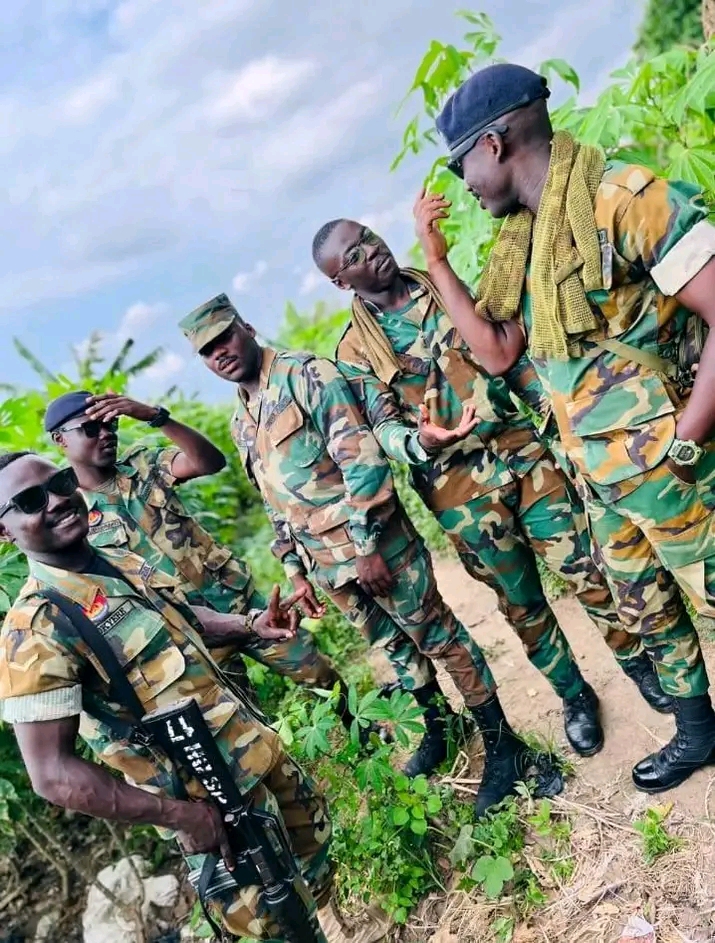Accra, Oct. 8, GNA – A Witness on Wednesday told the National Reconciliation Commission (NRC) how soldiers followed up to the hospital where she was admitted, beat her up and dragged her to the Nsawam Prisons in 1979.
Madam Rose Dompreh, then a baker at Adoagyiri, near Nsawam but now unemployed, told members of the NRC that in the wake of the June 4 Revolution, a soldier beat her up that resulted in her admission at the hospital for selling a piece of bread for 100 cedis to a boy. “As if the beating I received was not enough, about 10 soldiers followed up to the hospital where they beat me up with the butt of their guns on my hospital bed, on mere allegation that I was selling smuggled goods and had resisted arrest.”
The witness, now 58, said the ordeal she went through in the hands of the soldiers had made her a sick person and unable to continue with the baking.
Narrating her story, Madam Dompreh said during the revolution, due to the scarcity of flour, bakers were forced to buy at higher prices those imported from Togo that made loaves of bread on the market very small and costly.
She said before her encounter with the soldier, she was hawking from Adoagyiri to Tuansi in Nsawam after the customers who sold for her had refused to sell because they were afraid of soldiers who persistently harassed them.
Witness said a boy came to buy 100 cedis worth of bread but since she had then sold all the smaller pieces, she was forced to cut a piece from the 500 cedis worth of bread for him and this resulted in her arrest.
She said her husband, who was very helpful during her ordeal also received his share of the beatings when he tried to get onto the Military Jeep that took her to the Nsawam Prisons.
Madam Dompreh said luckily for her, an Army Warrant Officer in the Prisons yard was sympathetic to her and asked her to go home and seek medical treatment after listening to her ordeal.
In spite of the treatment she later received at the Orthopaedic Training Centre at Nsawam, she said she occasionally suffered from nose bleeding, headache, dizziness and general body weakness resulting in her inability to continue with her trade.
Madam Dompreh thanked the NRC for the opportunity to hear her story and appealed to the Commission to help cater for her five children to further their education.
Professor Florence Dolphyne, Member of the Commission, on an inspection of the witness’s body showed a horrible scar on the left leg, about four inches wide scar on the right shin as a result of the lashes.
The Reverend Father Palmer Buckle, a Member of the Commission wondered why the same soldiers who provided peacekeeping services to other nations return to show so much brutality and hostility to their own countrymen.
He appealed to psychologists to help unravel this mystery and give recommendation on what to look out for when people were being recruited into the military.
Mr. Joseph Mensah Asante, a Businessman at Okaishie in Accra told the NRC that in 1979, soldiers seized about 50 cases of tricycle parts, 21 cartons of assorted toffees, 15 cases of louvre blades and some Saloon car spare parts from his shop at the Kimberly Avenue.
He also told the NRC how a soldier used the ear of his friend as an ashtray to extinguish the cigarette he (soldier) was smoking. Mr. Asante said his friend, Mr Kofi Nyarko, Managing Director of Obo Trading Company received treatment after the incident but died later.
Witness said after the soldiers had seized the goods at Okaishie, they asked whether he had another shop, he replied in the affirmative, therefore, they followed him up to his shop at Kantamanto market and seized all the goods there.
He said before they left Okaishie for Kantamanto, one of the soldiers slapped his driver because, the driver failed to respond to a call from him (witness) that resulted in the loss of the driver’s tooth. Mr Asante said the soldiers sent the goods, including those of about 21 other shop owners to the Burma Camp.
He said on arrival at the Burma Camp, they were asked to remove their sandals, whilst they marched and sang, “We brought kalabule to Ghana; We are sabotaging the economy.”
Witness said his friends spent about five days at the camp, but luckily for him, one of his in-laws pleaded with one of the soldiers called “Israel” for his release but the soldier slapped him before asking him to pass through a barbed wire to escape.
Mr. Asante said he incurred a huge debt because he could not pay for the goods he had bought with a loan he took from the bank and had to sell his house at Dzorwulu for 12 million cedis to pay the debt. He noted that the soldiers during the Uprising were greedy and took possession of what did not belong to them and that due to the pain and agony traders went through most of them decided not to trade again.
Mr. Asante said his second wife helped to take care of his six children.
Source: GhanaWeb










